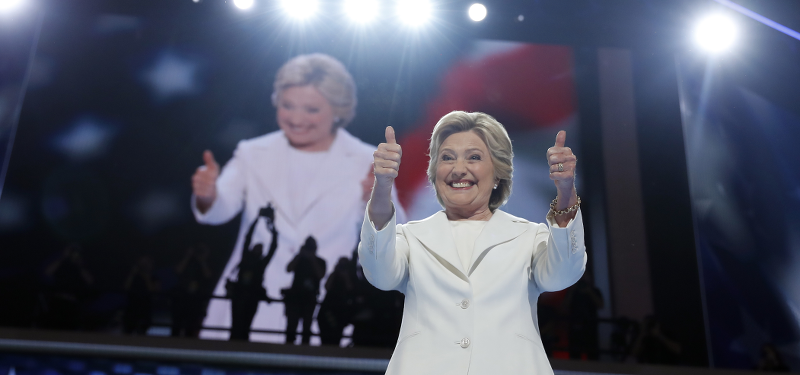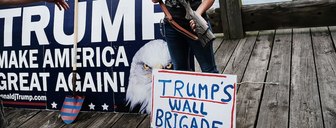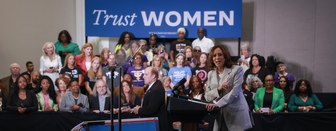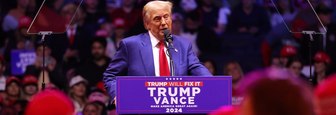The YouGov/CBS News 2016 Battleground Tracker polled likely voters across eleven competitive states before and after the Democratic National Convention
Hillary Clinton has received a small convention bounce, lifting the Democratic nominee back into a narrow lead over Donald Trump across 11 swing states, according to the latest wave of the YouGov/CBS News 2016 Battleground Tracker. The findings are part of the latest installment of a panel study polling likely voters in competitive states before and after each party’s nominating convention.
In the latest survey, Clinton receives the support of 43% of likely voters, a two-point post-convention bounce equal to the two-point bounce Donald Trump received last week. Clinton gained most of her new support from undecided and third-party voters, but Donald Trump also dipped back down a single percentage point, meaning Clinton has gone from one point behind to two points ahead in a week.
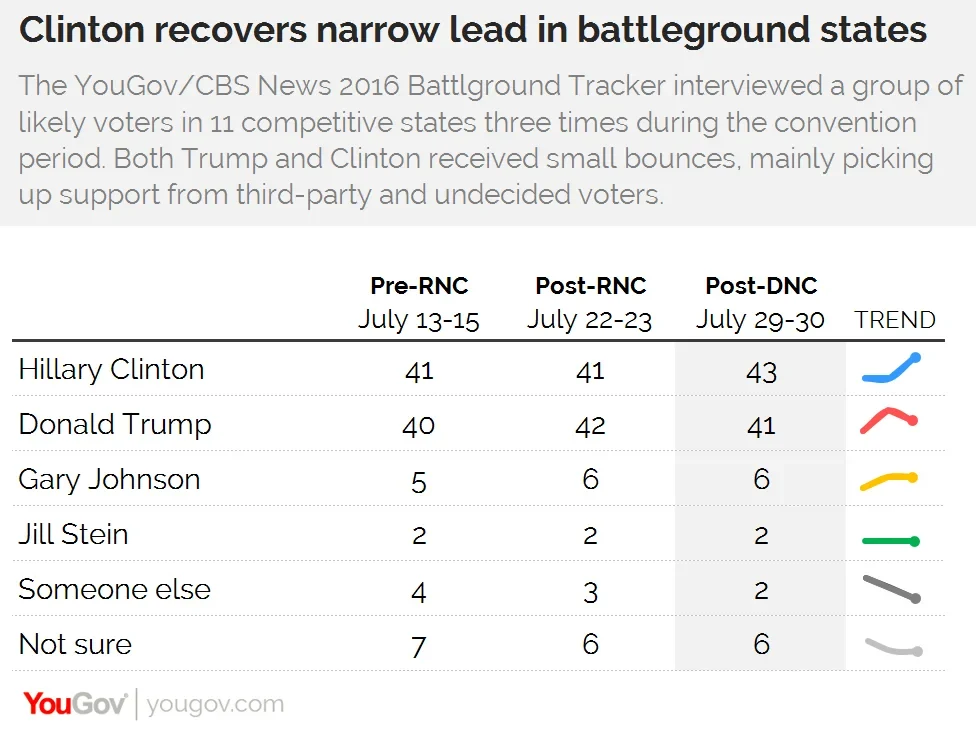
YouGov interviewed likely voters from Colorado, Florida, Iowa, Michigan, North Carolina, New Hampshire, Nevada, Ohio, Pennsylvania, Virginia and Wisconsin.
Though the changes are small, the nature of the study – which involved interviewing a group of likely voters in 11 states, first on July 13-15 and then recontacting the same group two times over the next two weekends – suggests even small movements in support among this demographically and politically representative group of likely voters are genuine.
What's less clear is whether the changes can be attributed to the Democratic National Convention, or other news events over the past week. Only 36% of likely voters, including just 25% of independents and 7% of Republicans, say the convention made them feel more positively about the Democratic nominee. Almost as many, 31%, say the convention worsened their opinions of Clinton. By contrast, 49% say Donald Trump’s recent comments about “Russia and hacking email servers” were “inappropriate”, while just 24% feel the comments were acceptable.
On Wednesday, Trump said, “Russia, if you’re listening, I hope you’re able to find the 30,000 emails that are missing. I think you will probably be rewarded mightily by our press.” The remarks sparked controversy, including criticism from numerous national security experts, just as the final days of the Democratic convention were underway.
Either way, the study shows a small but significant share of voters coming off the sidelines in swing states during the convention period. Before the Republican National Convention, a total of 81% of voters expressed support for one or the other of the major party nominees. That figure that is now 84%.
The most recent wave of interviews were conducted July 29-30, 2016 for the CBS News 2016 Battleground Tracker. A detailed description of the methodology used to carry out the surveys can be found here.
See additional questions and demographic breakdowns
